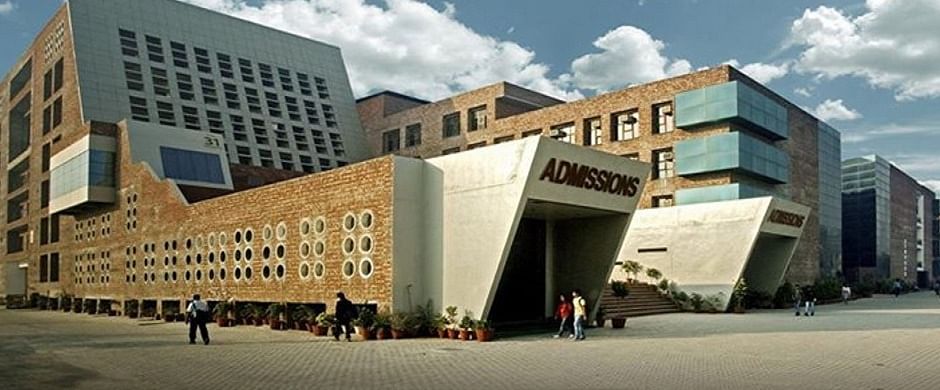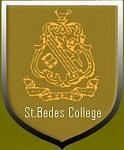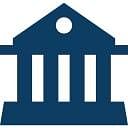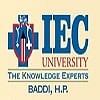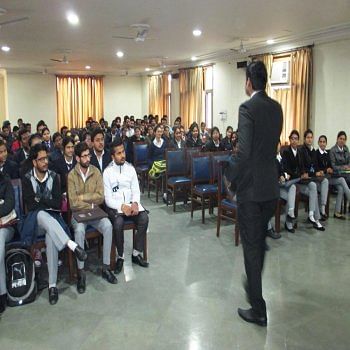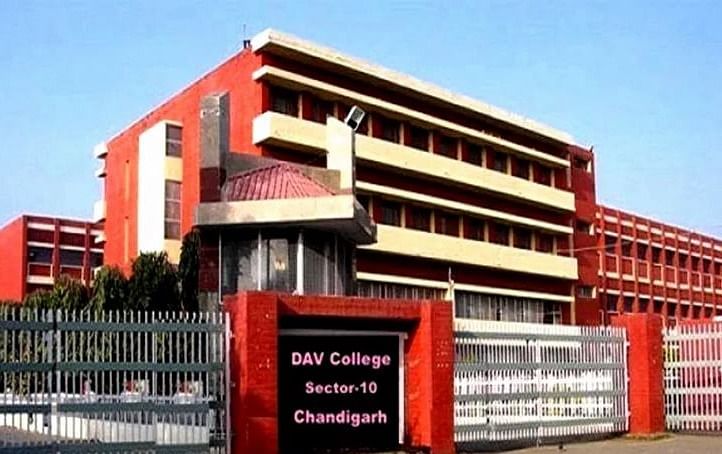B.Sc Non-Medical Syllabus and Subjects

B.Sc Non-Medical subjects aim to impart knowledge of non-medical subjects, such as physics, chemistry, biology, mathematics, computer science, and others. The subjects in the B.Sc Non-Medical help students gain the necessary skills to become professionals in their field. Hence, The job scope of BSc Non-Medical is extensive providing students with adequate career prospects.
Table of Contents
B.Sc Non-Medical Subjects
There are many relevant subjects in B.Sc Non-Medical necessary for a student to pursue a degree course not related to medicine. Let's see in detail what all are the subjects in the BSc Non-Medical course:
Core Subjects
B.Sc Non-Medical subjects consist of core and elective subjects. The following are some core subjects of the B.Sc Non-Medical course:
- Mechanics
- Electricity and Magnetism
- Thermal Physics
- Waves and Optics
- Organic & Inorganic Chemistry
- Calculus and Matrices
- Differential Equations
- Algebra
Elective Subjects
B.Sc Non-Med subjects include several electives that aspirants can choose based on their areas of interest. Some of the elective subjects are given below:
- Digital, Analog Circuits, and Instrumentation
- Linear Algebra
- Elements of Modern Physics
- Comprehensive Chemistry
- Integral Calculus
- Complex Analysis
B.Sc Non-Medical Subjects in Detail
B.Sc Non-Medical subjects are quite dynamic and spread across several domains. A detailed view of some of the B.Sc Non-Medical subjects is given below:
| B.Sc Non-Medical subjects | Topics Covered |
| Mathematics | Linear independence of row and column vectors, Eigen values, Eigen vectors, minimal and the characteristic equation of a matrix, |
| Organic Chemistry | Structure and Bonding, Mechanism of Organic Reactions, Alkanes, Alkenes, and Alkynes, Alkyl and Aryl Halides |
| Physics | Interference of Light, Interference by Division of Amplitude, Diffraction, Polarization |
| Inorganic Chemistry | Coordination Compounds, Non-Aqueous Solvents, Oxidation and Reduction, Chemistry of Lanthanide Elements |
| Quantum Mechanics | Instructions for the Paper Setters, Formalism of Wave Mechanics, Problem in One and Three Dimensions, Production of X Rays and its properties |
| Physical Chemistry | Electrochemistry, Nuclear Chemistry, Spectroscopy, Rotational, Electronic & Vibrational Spectrum |
Semester-Wise B.Sc Non-Medical Subjects
The main subjects in the B.Sc Non-Medical course include chemistry, physics, computer science, mathematics, and general English. The following are the semester-wise B.Sc Non-Medical subjects:
1st Year B.Sc Non-Medical Subjects
The first-year Bachelor of Science Non-Medical subjects are given below:
|
Semester I |
Semester II |
| Language - English | Language - English |
| Regional Language | Regional Language |
| Mechanics | Electricity, Magnetism, and EMT |
| Mathematical Physics | Physical Chemistry |
| Organic & Inorganic Chemistry | Integral Calculus & Theory of equations |
| Differential Calculus, Geometry & Matrices | Organic Chemistry II |
1st Year B.Sc Non-Medical Practical subjects:
Practical and lab work are highly associated with any B.Sc Non-Medical subject. Some of the Practical topics in the first-year B.Sc Non-Medical are given below:
- Identify and separate the different ions that are present in the mixture.
- Precise recording of the melting and boiling points of organic compounds.
- Find the value of acceleration due to gravity using pendulums.
- Contrasting the viscosity and surface tension of various liquids and solutions
2nd Year B.Sc Non-Medical Subjects
Some of the second-year B.Sc Non-Medical subjects are given below
|
Semester III |
Semester IV |
| Language - English | Language - English |
| Regional Language | Regional Language |
|
Thermal Physics and Statistical Mechanics |
Wave Vibrations and Optics |
|
Inorganic Chemistry II |
Organic & Inorganic Chemistry III |
|
Differential Equations |
Physical Chemistry-III |
|
Physical Chemistry-II |
Linear Algebra |
|
Real Analysis I |
Electronics |
2nd Year B.Sc Non-Medical Practical subjects:
The Practical topics in the second-year B.Sc Non-Medical are given below:
- Study resonance in series & parallel LCR circuit
- Determine the capacitance, self-inductance, permeability, and permittivity of air
- Examine the variation of the magnetic field along the axis of the coil
- Calculate the value of V by studying the adiabatic expansion of a gas.
3rd Year B.Sc Non-Medical Subjects
The third-year B.Sc Non-Medical subjects are given below:
|
Semester V |
Semester VI |
| Language - English | Language - English |
| Regional Language | Regional Language |
|
Organic Chemistry-IV |
Comprehensive Chemistry |
|
Physical Chemistry-IV |
Statics and dynamics |
|
Numerical Analysis |
Modern algebra |
|
Condensed Matter Physics |
Nuclear and Particle Physics |
|
Electives |
Electives |
3rd Year B.Sc Non-Medical Practical subjects:
Some of the Practical topics in the third-year BSc Non-Medical are given below:
- With the Column Chromatography method, separate the various mixes
- Create several organic compounds
- Synthesize the various compounds using a Green Method
- Determine the molecular weight of a polymer by measuring its viscosity
B.Sc Non-Medical Course Structure
The B.Sc Non-Medical programme will focus on imparting specialised knowledge and practical training in various domains. The course is crucial as it brings in more advanced theoretical subjects about the field. The course structure for the course in the final year consists of internship and project submissions. The course structure is divided into:
- VI Semesters
- Core and Elective subjects
- Internship
- Project Submission
B.Sc Non-Medical Teaching Methodology And Techniques
The teaching methodology and the techniques adopted for B.Sc Non-medical consist of several traditional lecture-based training and classes. The course prioritises research skills. In-depth theoretical knowledge prompts the graduates to improve their application skills in the research environment. Some of the teaching methods and techniques are given below:
- Practical sessions
- Group Projects
- Workshops
- Lectures
- Case Methodology
B.Sc Non-Medical Projects
Projects for the B.Sc Non-Medical course help students apply the basic concept pursued to apply in real-life scenarios. Therefore, research works and project submissions are some of the very important parts of the course. The project motivates the students to develop skills in leadership and to face real-life scenarios.
Popular B.Sc Non-Medical projects are
- A project on Data Science
- Information security
- Free Flow Resource Allocation and Tracking System
- New Product Development impacts an organization.
B.Sc Non-Medical Reference Books
There are several reference books for students pursuing B.Sc Non-Medical course. The books will provide students with additional knowledge about some of the relevant topics covered throughout the course. Some of the best books for B.Sc Non-Medical are:
|
Books |
Authors |
|
Concept of Modern Physics |
Arthur Beiser |
|
Organic Chemistry |
Morrison and Boyd, Prentice-Hall |
|
An Introduction to Mechanics |
D.kleppner, R.J Kolenkow |
|
Introduction to Special Relativity |
R.Resnick |
|
Theoretical Mechanics |
M.R Spiegel |
Top B.Sc Non-Medical Colleges
Top Science Entrance Exams
B.Sc Non-Medical Fee Structure
FAQs on B.Sc Non-Medical Syllabus and Subjects
Q: What is the 1st year syllabus of B.Sc Non-Medical?
Q: What are the core subjects in B.Sc Non-Medical?
Q: What are the elective subjects in B.Sc Non-Medical?
Q: What are the B.Sc Non-Medical projects?
Q: What are the important books for B.Sc Non-Medical course?
